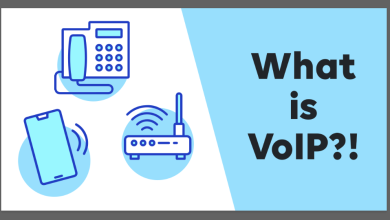So You Want to be a Cloud Engineer?

According to forecasts, “cloud engineer” will be one of the top 10 in-demand IT careers in 2021. There is currently a high demand for hiring cloud engineers, owing to the fact that many firms are migrating their business activities to the cloud. As more businesses move their data storage to the cloud, the demand for cloud engineers grows.
“Cloud development is the most in-demand expertise in 2021, owing to rising demand.” Cloud development skills are either as simple or complex to master as the matching on-premise technology stack, and there is often significant overlap between the two. The rising gap between the supply of skilled cloud resources and the rapid enterprise adoption of Cloud platforms is driving today’s resource demand.”
Cloud Engineering Position Requirements
A cloud engineer must be familiar with cloud computing software.
- Work experience and
- a degree in a related discipline,
- often a bachelor’s degree
- in management information systems
- or computer science,
- are required for this post.
- Additional credentials may be
- required for a given position,
- but in general,
- a cloud engineer is an IT professional
- who is in charge of technological upkeep
- and upgrades within the cloud.
Cloud engineers are classified into three categories. In a small company, one individual may be in charge of all three positions:
- A cloud architect is in charge of an organization’s cloud computing strategy, which includes application design, management, and monitoring. Cloud architects combine tools and services for all aspects of cloud computing, including data and networks.
- A cloud software engineer
- creates software that is intended
- to work in cloud computing systems
- and is in charge of managing the development
- and maintenance of these systems.
- Cloud Security Engineer: Security encompasses control-based technologies and procedures designed to satisfy regulatory compliance requirements. When dealing with the cloud, the major purpose is to protect information, data, data applications, and the infrastructure.
The cloud
Private, public, hybrid, and multi-cloud clouds are the four types of clouds.
A private cloud is created and controlled by a single entity.
- A private cloud can be
- developed utilising existing resources
- and infrastructure,
- it can be built using new
- and distinct infrastructure.
It is a private cloud if the organisation owns and operates it and is not renting out services.
In contrast,
- a public cloud emerges
- when an independent provider,
- such as Cloudera or Amazon Web Services (AWS),
- owns and
- operates computer resources
- that clients can access via the internet.
These resources are
- rented
- and shared
- by users of public clouds.
These resources are typically more plentiful, faster, and offer more memory than private clouds. There are no maintenance charges, and there is very little “accidental” downtime.
- Clients should not be
- charged for “accidental”
- downtime unless it is their fault.
- When a private cloud is linked
- to a public cloud infrastructure,
- a hybrid cloud is formed.
- This enables a company to coordinate
- workloads between two environments.
- The public cloud is
- effectively used as an extension
- by the private cloud a
- nd should behave as a single,
- consistent cloud.
A hybrid cloud necessitates a high level of compatibility between the services and software utilised by both cloud platforms.
Using Experience to Earn a Certificate
If a person has the talents but no documentation to back them up, Google has a test and a certificate waiting for them.
Gaining Experience
People who are new to the sector will, of course, lack experience, which is the single most significant requirement for the position. A bachelor’s degree in computer science can help you get expertise for a work as a cloud engineer. With online programmes, you can get an alternative to a traditional education.
Learning a programming language or two, such as Java, Python, or C++, is a fantastic place to start when learning how to interact with the cloud.
Many firms are establishing hybrid clouds, and previous expertise with cloud-as-a-service could be a big advantage.
- AWS provides some free classes,
- but some demand a registration fee.
- Microsoft provides paid test certifications
- as well as a few classes.
Programming Skills
When it comes to cloud engineer abilities, you can’t disregard the role that developers play in computing. Developers have the ability to easily design, launch, and manage apps. As a result, learning appropriate programming languages or frameworks would be advantageous.
Choosing Valuable Skills
When deciding on the abilities and expertise required for the post of cloud engineer, the applicant must examine what will be required. Different corporations employ various clouds and hybrid combinations. It would take an inordinate amount of time to learn all of the skills that a cloud engineer might employ. Ideally, the applicant will be working with a new company to select courses that are particular to the organization’s computer system and arrangements.
If the job and training cannot be coordinated ahead of time, the best bet is to favour the talents that appear to be the most popular with employers while following trends.
The following list of abilities and their popularity shows
- where an applicant’s
- learning priorities should be placed:
Python:
- Python is the fastest growing programming language, and many cloud platforms use it.
Amazon Web Services (AWS):
- AWS was the first to offer low-cost cloud services and remains the market’s leading cloud service provider.
- AWS knowledge is
- regarded as one of the top skills that employers
- are now looking for.
Azure:
- Microsoft’s Azure is quickly becoming one of the most popular cloud infrastructure platforms.
Java:
- Hadoop is based on
- Java, which is widely used.
- A new evolutionary shift
- may make it even more cloud-friendly.
Agile:
- Agile, an IBM product that has gained popularity in recent years,
- “project management made simple.”
Puppet:
- Puppet provides AWS automation (which saves time)
- and is utilised
- in DevOps scenarios.
- Ansible is an open source
- centralised server management system
- that aids with cloud deployment.
Chef:
- Chef’s Automate tool,
- which is also used in DevOps,
- delivers enterprise-wide analytics.
Docker:
- Docker is an open source containerization platform that can transfer running software programmes within a container.
VMware:
- VMware is a company
- that provides a platform for virtualization software,
- cloud computing,
- and a variety of services that
- are used by many enterprises.
- AWS is a partner for the company.
Hadoop:
- Though designed in Java,
- C++, Python, PHP, C#, Cocoa, Smalltalk, Ruby, Erlang, Perl, Haskell, or Ocaml.



